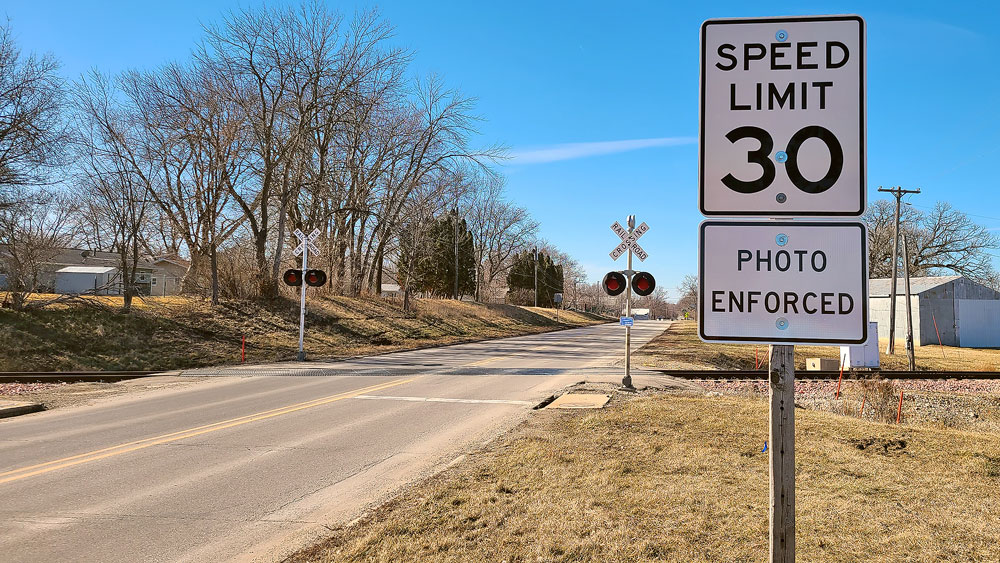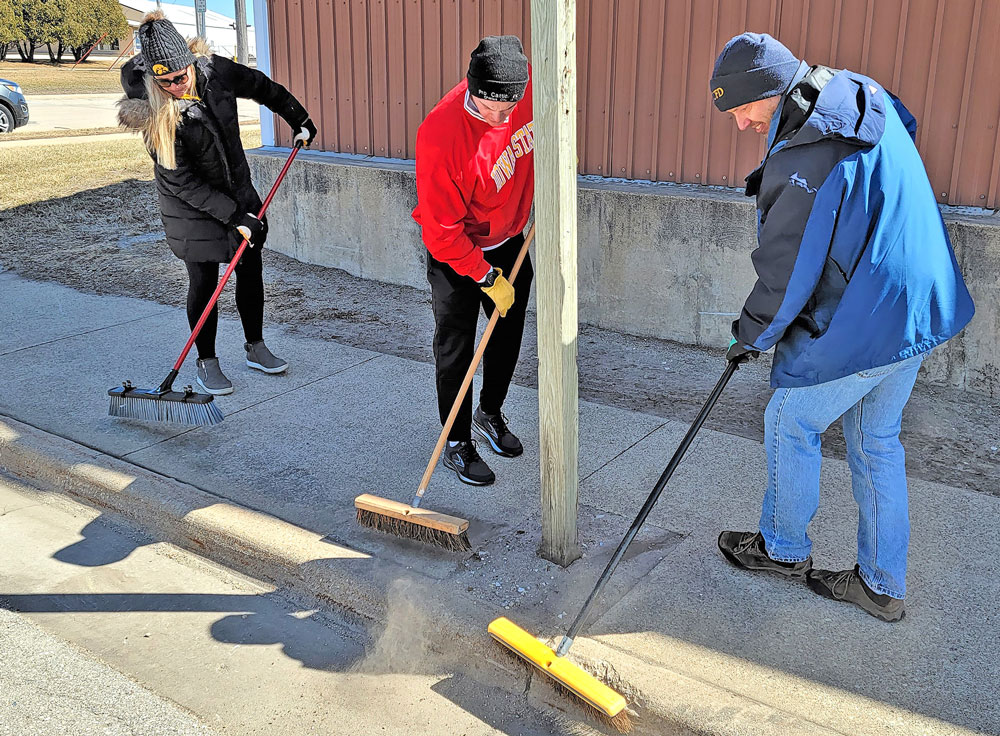SALUTE TO BEEF: As cattle operation grows, Bills still keep it a family business


By James Grob, jgrob@charlescitypress.com
Typical high school seniors are thinking about things like prom, grades, school events, diplomas, summer fun with friends and what they’re going to do after they graduate.
There are a few, like Quincy Bill, who are also thinking about managing their cattle operation.
“We got back into cattle about four years ago,” Bill said. “My brother, Dom, was a senior and I was just 14.”
Dominique Bill is now 22 and Quincy is 18, a senior at Charles City High School. The two brothers run a cattle operation with a little help from their dad, “who tells us what we should and shouldn’t do.”
The operation is located at 1549 Rampart Ave., just off county road B33 (155th Street), north of Charles City and east of Floyd. The property is along Wentlands Woods. Quincy said it’s on the farm his grandpa bought in the 1960s.
Quincy said his father was in the cattle business “back in the day” but got out when he started the trucking company, Anthony Bill Trucking, in the early 1990s. The trucking company now runs nationwide. Dom also runs ABT repair, through the trucking business.
Although the growing cattle operation is essentially Quincy’s and Dom’s, they look to Anthony for guidance often, and trust his experience and wisdom.
“Mostly it’s just our project,” Quincy said. “He helps us with financials and decision-making. He has a good tell on what the market is going to do.”
What started as one purebred Angus cow, who birthed a bull calf the Bills named “Ground Beef,” has more than 300 animals now, including 230 calves, more than 70 cows and three bulls.
“The plan is to keep growing until we can’t get any bigger,” Quincy said.
The stock is a mixture Black Angus and Red Angus, and the Bills recently bought 34 Black Baldys, a Hereford/Angus cross.
“The Black Angus is known for mothering skills, they have good tendencies to take care of the calves,” Quincy said. “The Hereford makes a good, stout calf and a good stout mom to tend to the calf.”
Quincy is remarkably knowledgeable about the operation. He said he “loves raising cattle” and is active in FFA. He shows beef cattle at the Floyd County Fair and elsewhere. He received his Iowa FFA Degree at the Iowa State FFA Convention last month, as his brother did his senior year.
After that first cow gave birth four years ago, the Bills bought 30 cows and took over the old family cattle lot. They raised 15 of their own heifers the following year, and bought 12 more the year after that.
“It was a big change,” Quincy said. “We cleaned everything up and have been slowly growing every year.”
They’ve constantly upgraded their equipment, and they’ve put up four new buildings on the property, including a 104-by-50-foot structure they built to house equipment, and another building they hauled in from Colorado. They have also put up a modernized calving shed and have added about eight times the amount of fenced-in land, according to Quincy.
“We started getting a little crazier and crazier with our buildings,” Quincy laughed. “We started by turning grandpa’s old machine shed into a feed shed, and we’ve just kept going from there.”
Quincy said that all the hard work and money is an investment for the future. The hope is to eventually double or possibly triple the size of the operation.
“We’ve put a lot of money into it, and a lot of work, maybe way too much,” Quincy said. “But it’s something where we can diversify the company and put money to where we can grow.”
He said that he still wants to keep the operation as a family farm, however, and doesn’t want it to grow into something he and his brother can’t manage.
“We tend to be environmentally safe, but the bigger you get, the more attention you get from the EPA, and we’d like to keep it small enough that we don’t have to contend with that all the time,” Quincy said. “We don’t want them watching our every step.”
He said the other positive thing about keeping the operation small is the business won’t have to be completely dependent on others to remain successful.
“Dad always says the best option is to believe in yourself, and invest in yourself,” he said. “That’s what we intend to do.”








Social Share